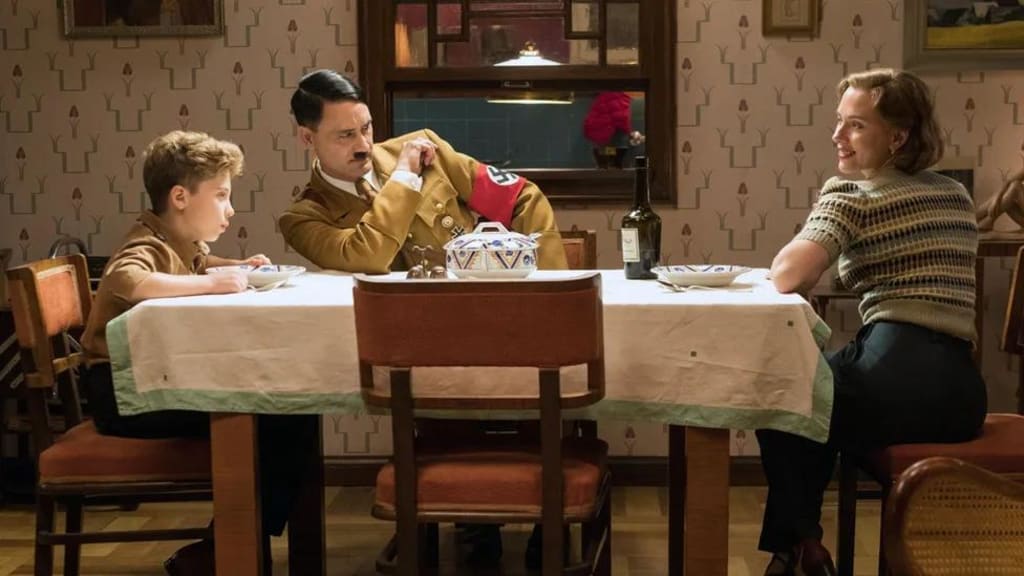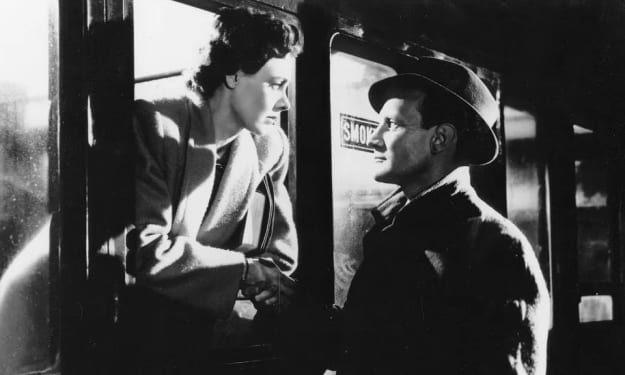
Taika Waititi’s Jojo Rabbit is a sweet-natured, cheerful, brightly-coloured family comedy, that is also a howl of rage at the cruelty of war, Nazism, and the way adults impose grotesque dogmas on naive children. Skipping back and forth between silliness and sadness, between happiness and horror, it is a film that, even when it isn’t entirely working, astonishes you with its very existence. A feel-good comedy? With children? About anti-Semitism? And Hitler? We won’t be getting many more of those this year.
The charm and offbeat humour of Jojo Rabbit will be familiar to anyone who has seen Waititi’s previous films, including Thor: Ragnarok, Hunt for the Wilderpeople and What We Do in the Shadows. Set in Germany towards the end of World War Two, it’s also vaguely reminiscent of the comedy sketch by British duo Mitchell and Webb in which one SS officer asks another, “Are we the baddies?” The point is that the film’s tiny 10-year-old hero, Johannes Betzler (Roman Griffin Davis), believes that the Nazis are definitely not the baddies. His idea of fun is to learn how to throw knives and burn books while he’s at a Hitler Youth training camp in the woods, and he reveres the Führer so much that Adolf, played by Waititi himself, keeps popping up as his imaginary best buddy. The training-camp sequence is hilarious, but there is a grim insight beneath the jokes: for a generation of Germans, learning how to fight for Hitler was an honour and a treat.
But maybe Johannes isn’t the Aryan superman the Fatherland needs, after all. He may boast that he is “massively into swastikas”, but he can’t bring himself to kill a rabbit, which is why the camp instructors land him with the nickname Jojo Rabbit. When he comes home from the camp, his mother Rosie (Scarlett Johansson) doesn’t seem quite as pro-Hitler as she once was, either. Somehow, Johansson continues to be a revelation in role after role. As superb as she always is, I’ve never seen her being as touching as she is here. With the help of a nightly bottle of red wine, Rosie manages to stay positive and playful for the sake of her son, even though her husband has been posted to some distant country and her daughter is dead.
Johannes doesn’t guess his mother’s true feelings until he discovers that she has hidden a teenage Jewish girl, Elsa (Thomasin McKenzie), in the walls of his late sister’s bedroom. He is appalled – and slightly surprised that this inhuman monster doesn’t appear to have horns. But once the pair of reluctant housemates get talking, Johannes is forced to question whether everything he has been told about Jews is strictly true. There is even a chance that friendship will conquer fear, and love will conquer hate.
Adapted from Caging Skies, a novel by Christine Leunens, Jojo Rabbit has the plot of a conventional, sentimental Holocaust story, and it isn’t as powerful as it might have been. This isn’t the fault of the two terrific leads: both Davis and McKenzie have the conviction and comic timing to match any adult actor. But it’s clear from the start that Johannes’s heart isn’t really in Nazism – he’s just too nice – so his change of attitude towards Elsa doesn’t feel like a world-shaking wrench. Similarly, Elsa is 10 times braver and tougher than he is, so there is none of the jeopardy and suspense that should be part of any film about a fervent young Nazi finding a Jewish girl in his house.
Some viewers will complain that the subject is no laughing matter
Plotting aside, though, the balance between light and darkness is remarkable. Jojo Rabbit is designed and lit to look as warm and cosy as a fairy tale, but then, just when you’re relaxing and enjoying it, it shows a row of executed resistance leaders hanging from a gibbet in the town square. Likewise, the Nazi officers, including a boozy, disillusioned captain played with aplomb by Sam Rockwell, and a priggish Gestapo agent played by Stephen Merchant, can be innocuous in one scene and frightening in the next. But most of the time they are cartoonish fools, speaking English with on-off German accents and using anachronistic slang. Rebel Wilson – as a camp leader – gets to mutter “O M Gott”. Waititi’s goofy Hitler cries: “Correctamundo!”
The writer-director is cheating, to an extent: if a small boy idolised Hitler, it’s hardly likely that he would imagine him to be the petulant, pot-bellied, baggy-trousered buffoon portrayed here. But you can forgive a little conceptual slipperiness when the results are as funny as Jojo Rabbit. And perhaps in depicting the Nazis as a clueless and immature bunch, the film gets at a truth that more traditional Third Reich dramas miss: however terrifying the Nazis’ ideology might have been, it was also essentially childish nonsense.
Some viewers will complain that the subject is no laughing matter. Waititi’s riposte seems to be that, actually, it is vital that we laugh at Nazis – and Jojo Rabbit ensures that we do just that.
About the Creator
Monu Ella
And I know it's long gone and there was nothing else I could do






Comments
There are no comments for this story
Be the first to respond and start the conversation.